G7 unveils $600bn infrastructure plan to rival China's Belt and Road initiative
The Group of Seven (G7) countries are set to raise $600 billion in funding for advancement projects in the developing world in a move designed to counter China’s Belt and Road Initiative (BRI).
The Partnership for Global Infrastructure and Investment (PGII) plan, revealed on Monday, relaunches a scheme unveiled at the 2021 G7 summit in Britain.
According to US President Joe Biden, the plan is set to deliver returns for everyone and will “mobilize strategic investments in areas vital to sustainable development and our shared global security.”
"I want to be clear this isn't charity. It's an investment that will deliver returns for everyone, including the American people and the people of all our nations. It will boost all of our economies. It's a chance for us to share our positive vision for the future,' Biden told the rest of the G7 leadership.
The plan, which is set to raise the funding in five years and invest it in middle and low-income countries, would allow states to “see the concrete benefits of partnering with democracies,” the US president elaborated.
"Developing countries often lack the central infrastructure to help navigate global shocks, like a pandemic, so they feel the impacts were acutely, and they have a harder time recovering," Biden said. "That's not just humanitarian concern. It's an economic and security concern for all of us."
The White House said its $200 billion in grants and federal financing would help low-income countries meet their economic and national security needs.
"And this will only be the beginning: the United States and its G7 partners will also seek to mobilize hundreds of billions in additional capital from other like-minded partners, multilateral development banks, development finance institutions, sovereign wealth funds, and more," it said in a statement.
European Commission president Ursula von der Leyen confirmed that the US has promised to raise $200bn of the total fund, while the EU has announced a further 300 billion euros for the initiative.
The scheme is aimed at tackling problems of climate change, improving global health, achieving gender equity, and building digital infrastructure.
Flagship projects include a $2 billion solar farm project in Angola, and a vaccine manufacturing facility in Senegal.
PGII has been vaunted as a way of countering China’s ambitious BRI which finances projects like ports, roads, and bridges in more than 100 emerging economies.
The US and its Western allies have accused China of providing “predatory loans” and forcing debt-saddled countries to cede key assets if they fail to meet their debt repayments.
The US officials have severally warned African nations against accepting Chinese loans, saying that it could “forfeit their sovereignty.”
On the other side, the African countries and other developing states say Western governments, unlike China, do not bring assets and investments to third-world countries.
In recent years China has increased its influence on the African continent and has surpassed the US as Africa’s largest trade partner in 2009, supplying billions for infrastructure projects.
It has prompted the G7 member states to block the Chinese influence and investments in the African and third world countries.
The member countries of the inter-governmental forum, which generate nearly half the world's economic output, have gathered at their annual summit held this year at Schloss Elmau in southern Germany, to discuss plans to cooperate more productively and to oppose the Russian bloc.
'Capitulation': Israeli officials and media concede Gaza defeat as truce unfolds
'Gaza has won': Social media users react to ceasefire with mix of relief, joy
Iran seeks South Korea’s assistance for AI, fiber-optic projects
VIDEO | Iran's 'Eqtedar' (Power) maneuver
Israel hits HTS military target in Syria for 1st time since fall of Assad
VIDEO | Press TV's news headlines
Israel has slaughtered 13,000 students in Gaza, West Bank
VIDEO | More Zionist than Zionists: Biden’s legacy to be defined by Gaza genocide


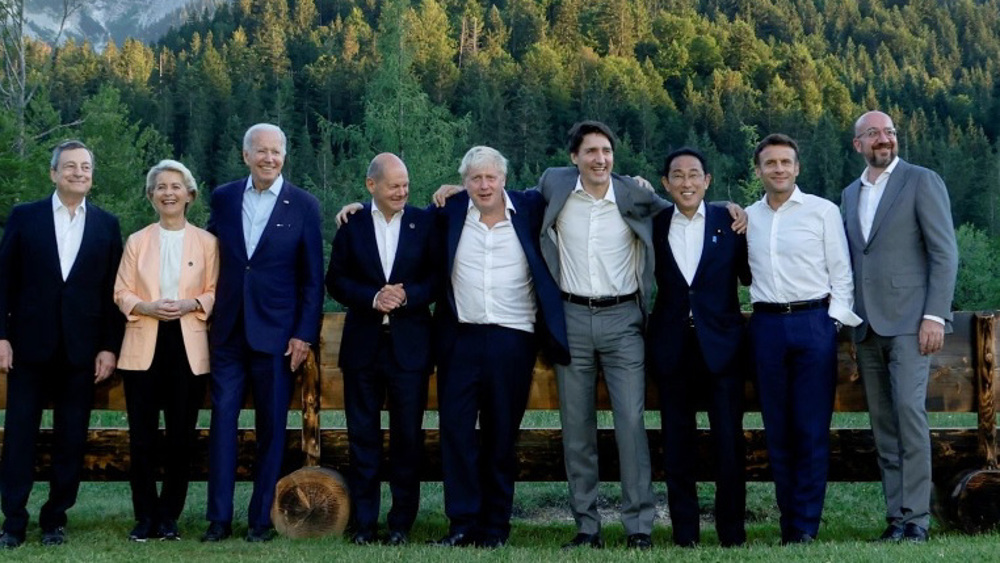
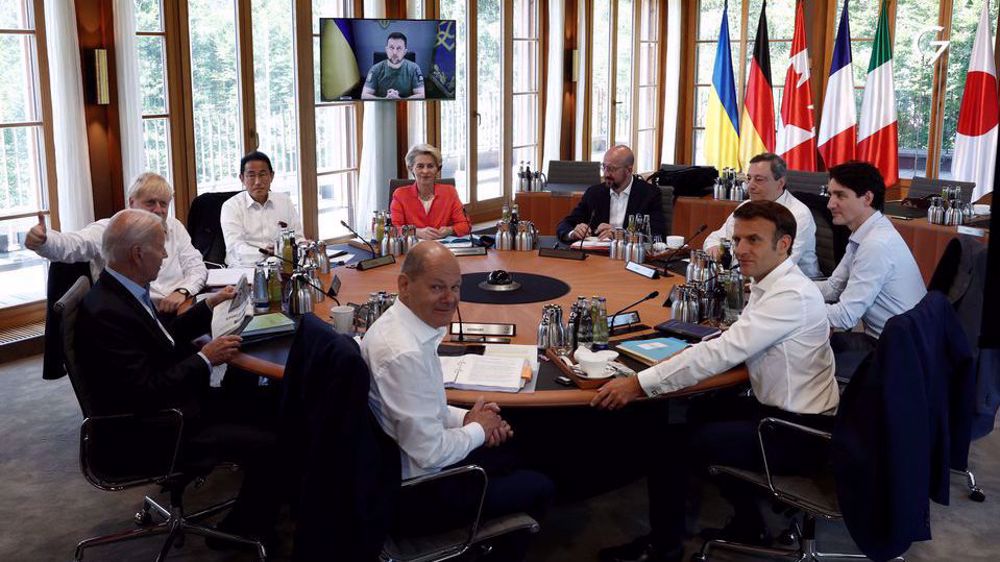
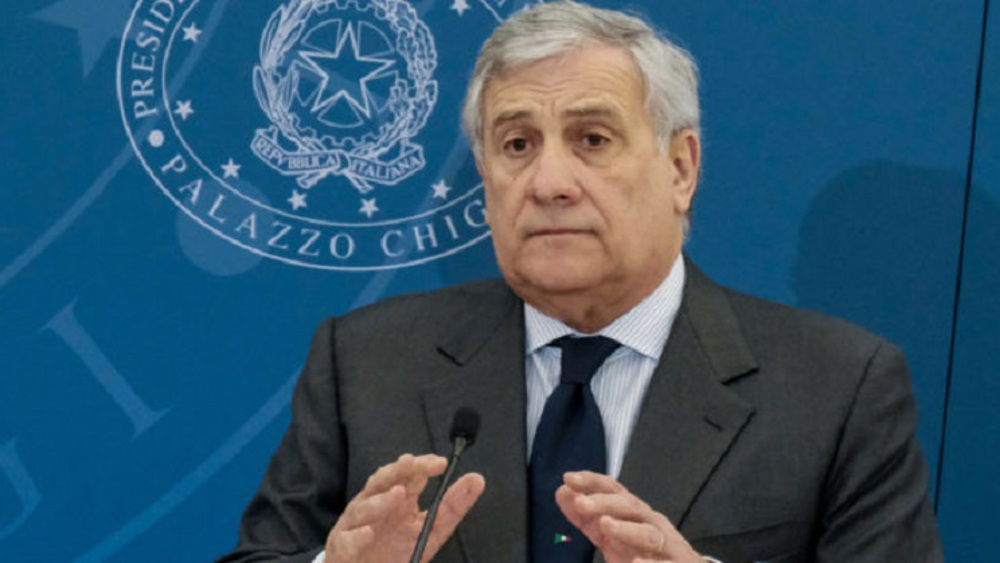
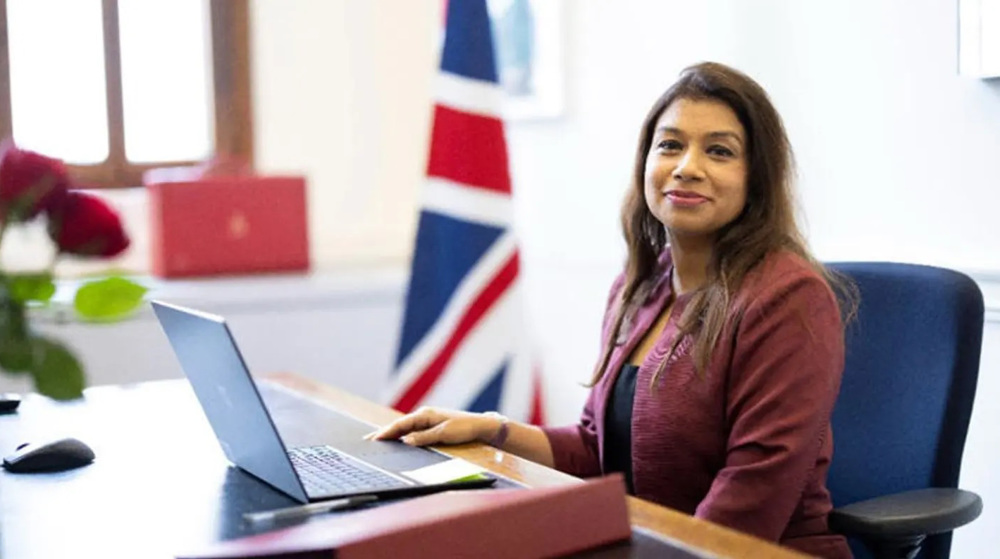
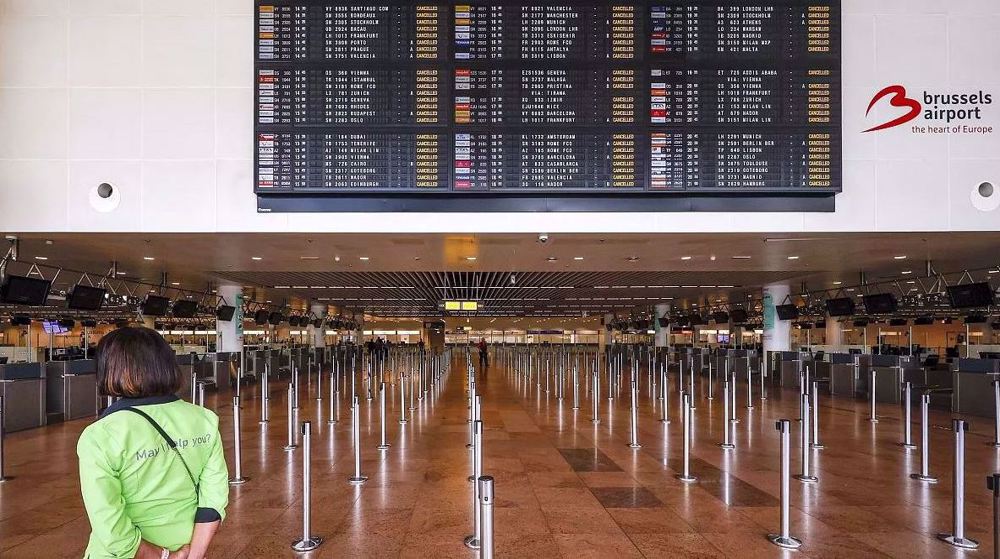



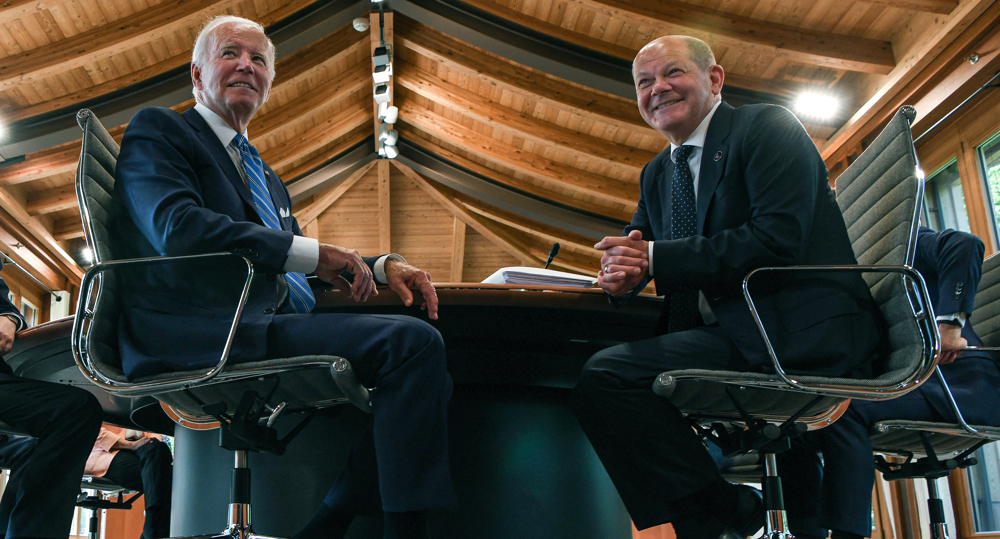
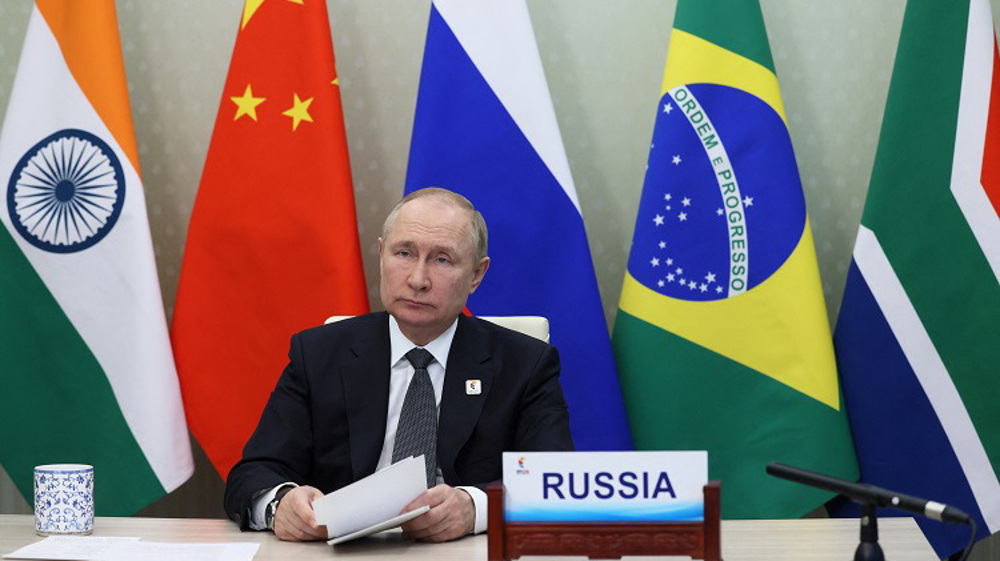
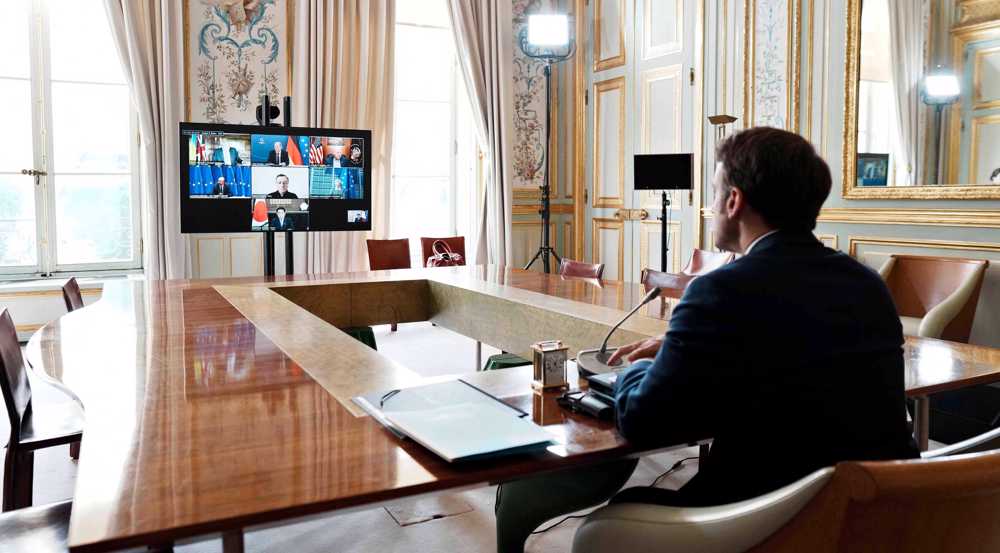
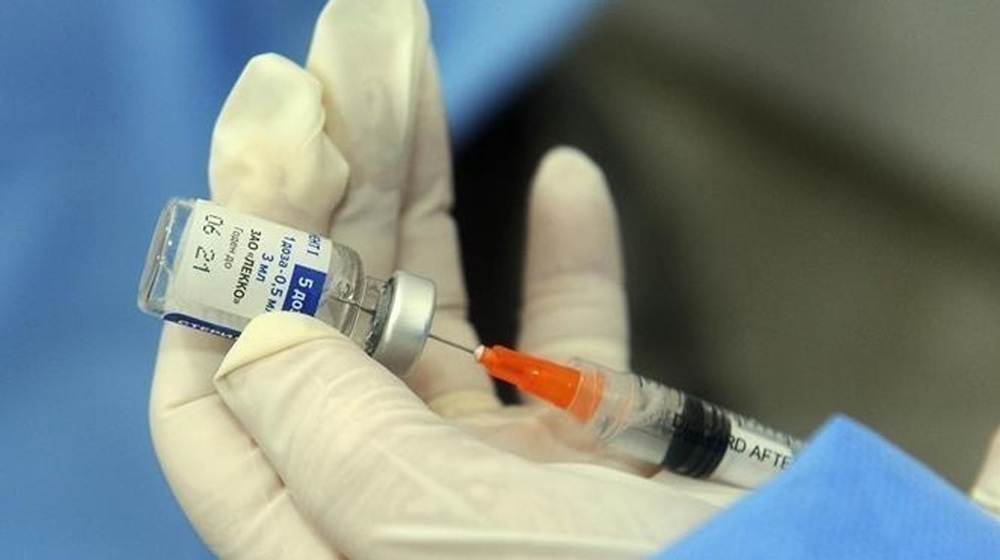
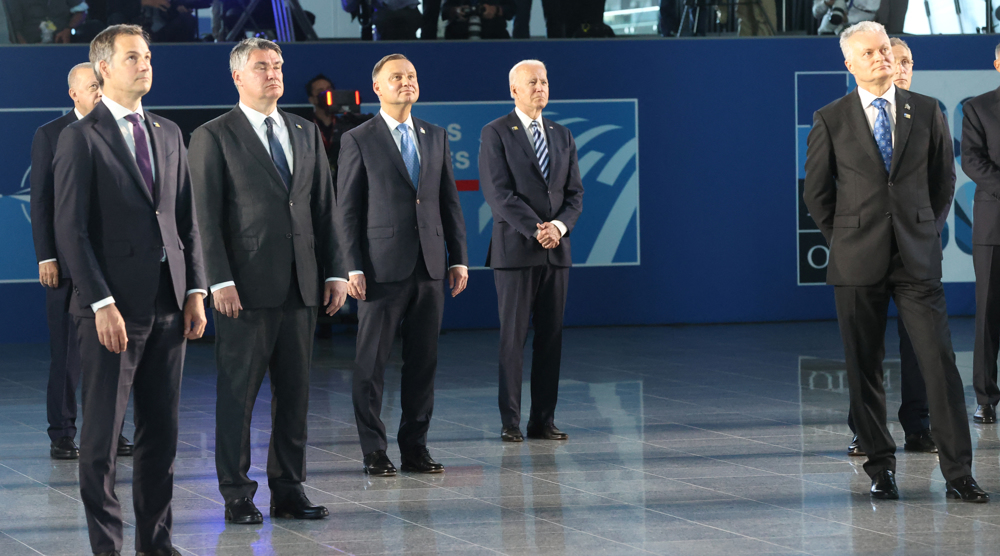

 This makes it easy to access the Press TV website
This makes it easy to access the Press TV website